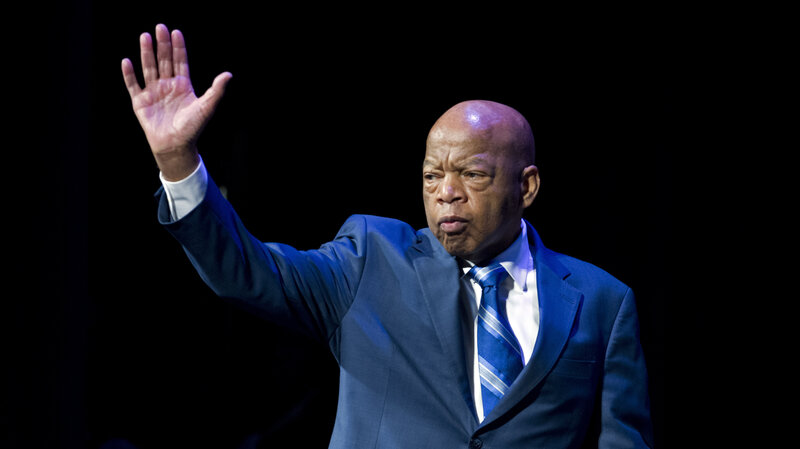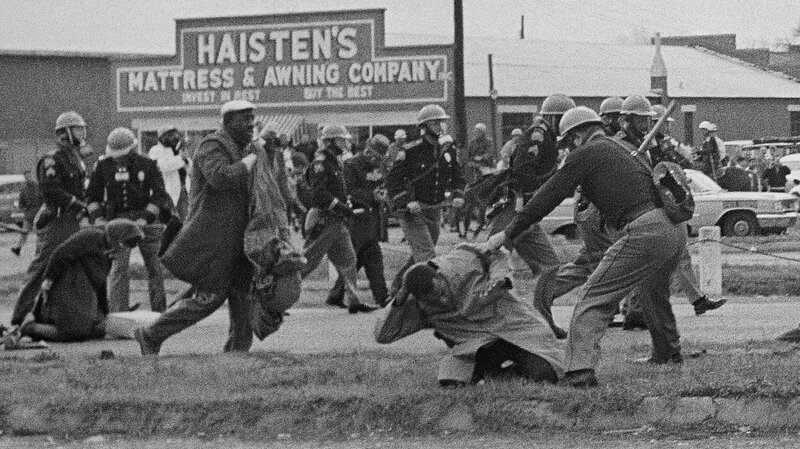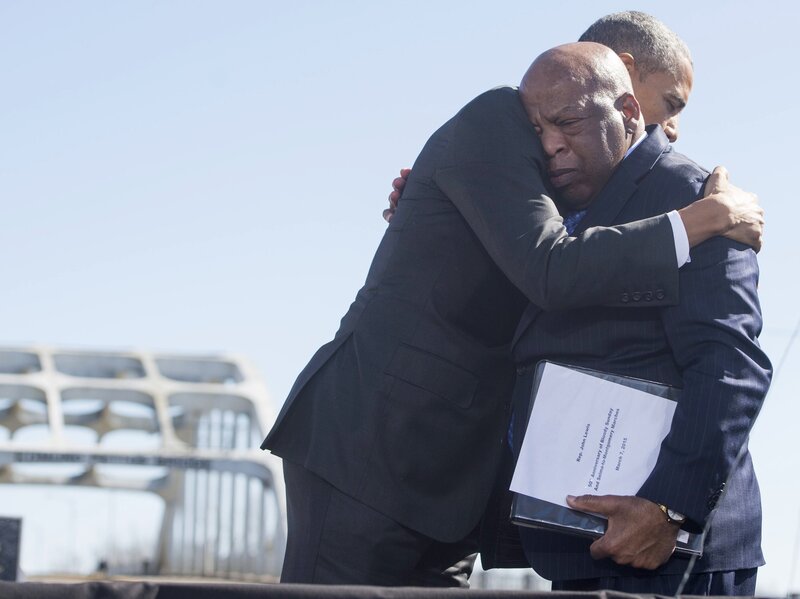News
R.I.P Civil Rights Leader And U.S Senator John Lewis
 Rep. John Lewis waves during the swearing-in ceremony of Congressional Black Caucus members in January. Jose Luis Magana/AP
Rep. John Lewis waves during the swearing-in ceremony of Congressional Black Caucus members in January. Jose Luis Magana/AP
R.I.P Civil Rights Leader And U.S Senator John Lewis.

State troopers swing billy clubs at protesters, including John Lewis in the foreground, at a civil rights voting march in Selma, Ala., on March 7, 1965, that became known as Bloody Sunday. AP
ABOUT JOHN LEWIS
Lewis began his nearly 60-year career in public service leading sit-ins at segregated lunch counters in the Jim Crow-era South. He elevated that fight for freedom and equality with a speech on the steps of the Lincoln Memorial at the 1963 March on Washington and tested his own resolve as he and other peaceful protesters were violently beaten in 1965 while crossing the Edmund Pettus Bridge in Selma, Ala.
Lewis called it a moral obligation to stand up for his beliefs. That drive for service motivated him to run for Congress, where he represented the Atlanta area in the U.S. House for more than 30 years. He continued to work after his diagnosis, pledging to face advanced-stage cancer the same way he met the other great challenges of his life: by refusing to back down.
“I have been in some kind of fight — for freedom, equality, basic human rights — for nearly my entire life. I have never faced a fight quite like the one I have now,” Lewis said in a December statement announcing his diagnosis. “I have decided to do what I know to do and do what I have always done: I am going to fight it and keep fighting for the Beloved Community. We still have many bridges to cross.”
Lewis was known throughout his career not only for his dedication to equality and justice but also for his unique and moving oratory. He was revered by his colleagues in Congress for his ability to capture a moment and inspire others to action, a skill he honed from his earliest days.

In this Feb. 15, 2011, file photo, President Barack Obama presents a 2010 Presidential Medal of Freedom to U.S. Rep. John Lewis, D-Ga., during a ceremony in the East Room of the White House in Washington. Lewis, who carried the struggle against racial discrimination from Southern battlegrounds of the 1960s to the halls of Congress, died Friday, July 17, 2020. (AP Photo/Carolyn Kaster, File)

Then-President Barack Obama hugs Rep. John Lewis during a 2015 event at the Edmund Pettus Bridge in Selma, Ala., commemorating Bloody Sunday.Saul Loeb/AFP via Getty Images

In this March 17, 1965, file photo, Dr. Martin Luther King Jr., fourth from left, foreground, locks arms with his aides as he leads a march of several thousands to the courthouse in Montgomery, Ala. From left are: an unidentified woman, Rev. Ralph Abernathy, James Foreman, King, Jesse Douglas Sr., and John Lewis. Lewis, who carried the struggle against racial discrimination from Southern battlegrounds of the 1960s to the halls of Congress, died Friday, July 17, 2020. (AP Photo/File)
